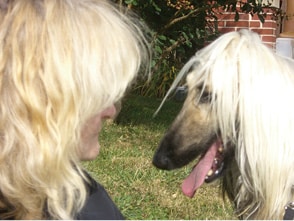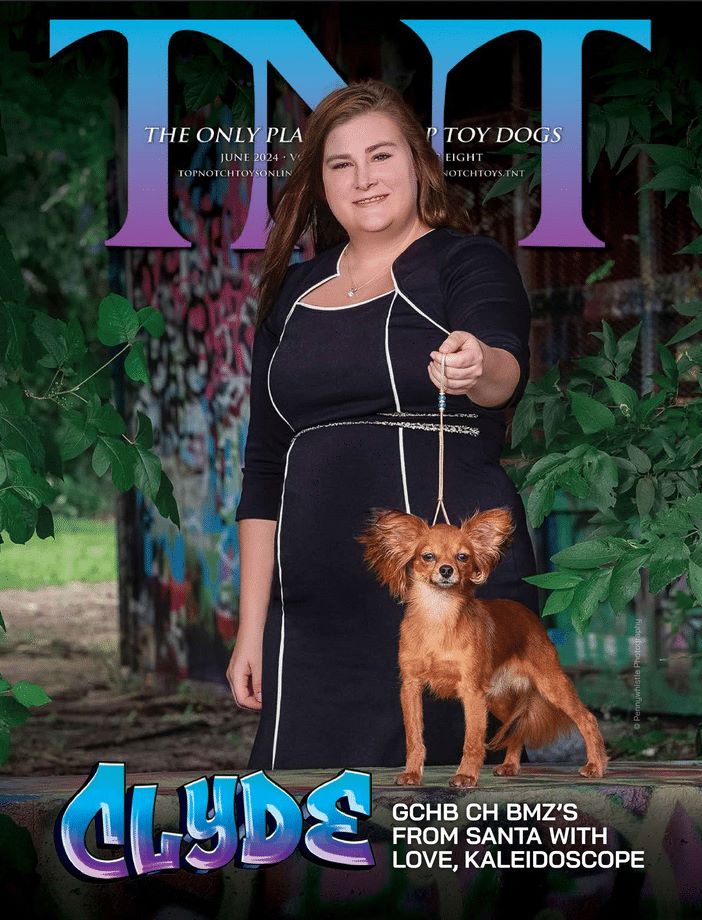Looking back at the past year, we have seen things get pretty much back to normal after the COVID years. I say “pretty much” because there is probably no way to get back to where it was before. Some things have changed—and not all necessarily for the better.
It has become increasingly difficult for owners and breeders to get veterinary attention on short notice, and emergency clinics are tighter than they used to be, with many refusing to perform an emergency C-section without also performing a spay. I hope these problems can be resolved in the coming year.
The differences in attitudes that are now paramount and which affect every aspect of dog breeding, showing, and ownership, not just since COVID but over the whole of the last 50 to 75 years, are striking. This has been reflected in the drop in AKC registrations, litters born, and purebred dog ownership. I have covered most of these in the past year already, but when you look further back at the 20th century and the changes from how things were then and how they are now, these decreases have not been helping.
I have been thinking a lot about the words that we use, and not just words like “fur baby” and “pet parent” but the broader terms which affect the opinions of people in general. Let’s take the word “kennel.” Fifty years ago, a dog kennel could have been a wooden doghouse like the one in the Snoopy cartoon, out at the end of the garden in a backyard, or it could also have been a boarding kennel, set up with divided pens for each dog, or a family of dogs kept for showing or breeding and sharing a bloodline. The latter could have lived in the house or there may have been a kennel building, from the humble to the luxurious. Today when we refer to the great kennels of the past, we think of what they accomplished, not how the dogs were housed or even the number of dogs that were maintained. Now the word “kennel” has almost become a dirty word.
I see comments on social media over and over that dogs should always be pets first and show dogs second, and the idea of having a kennel is met with derision. I see this as a very divisive issue. Both show dogs and pets should have optimal care and attention, but this concept is used to vilify those who have—horror of horrors—a kennel building, and who do not keep every single dog and puppy in the house 24/7/365. Fifty years ago, the breeders who were the lifeblood of the dog world were the people who maintained enough dogs to have a breeding program with a new litter (or two or three) every year. They had dogs being shown in all age groups and were able to provide other breeders with fresh bloodlines. Yes, that did mean that with medium-to-large breeds having litters of anywhere from 7 to 12 puppies, they could not all sleep in the house at the same time and needed the infrastructure which allowed for it. Some breeders would convert a double garage into a living area for their dogs, others would move to the country. These breeders were not judged by how many dogs they owned or how many litters they bred. The health, care, and attention provided to their dogs was what mattered most.
We see a lot written about mentors and mentoring when it comes to encouraging newcomers, but peer pressure has a big effect on how mentoring is received and how it is used. Attitudes have changed over the past 50-75 years, from when newcomers would talk to many people and buy and read books on their breed which had been written by people with decades of experience, until now. Today, people fall in with the majority, whether it is the current style of trimming, the “right” dog food to buy, how often breeding a litter is acceptable, or which style of dog should be shown if they want to win.
Another difference I see in the dog world is the attitude towards money, and to some, it has become a fixation. When I started showing and breeding, money never became a topic of discussion. Today people discuss and complain about the cost of everything compared to what it was when they bought their first dog in 19XX, but they never think of the relative value of that sum in today’s currency. I have seen complaints galore about the price of a dog show entry, but when asked, “Compared to what year?” they are shocked when they are given the 2022 equivalent. I use the measuringworth.com calculator. The same people who complain about the cost of entries and hotel accommodations forget (or never knew!) that back in the 20th century, exhibitors would drive the same vehicle until it dropped or until they needed a larger one. (Some still do, guilty as charged!) Now, looking at any parking lot at any dog show tells a different story. The newest and shiniest predominate.
This fixation prevails in too many instances these days. It bothers me when I see comments that AKC is “only in it for the money,” with critics and complainers not acknowledging all the good that is done in terms of fighting anti-breeder legislation, or funding and sponsoring research into health issues and veterinary medicine. I see critics slamming other breeders, not about the quality of their dogs or the care they receive but with the accusation that if they breed more than occasionally they must be in it for the money; and at the same time claiming that if they do it right, they lose money on every litter! I have seen breeders advocating online that people should ask for a credit report on a potential puppy buyer, which is not only invasive but does not guarantee the quality of care that a puppy will receive.
Now that we are entering another New Year—2024, I feel as if we are in a speeded-up time machine, and I would like to see a meld between all the valuable new discoveries and a return to more of the old ways. Get to know more people personally, even if they live too far away to meet in person. (People can call over the phone or through the Internet.) Learn about who they are, and their values, not what you have gleaned online. Make new friends, not enemies. You may be surprised.
Now the word “kennel” has almost become a dirty word.










